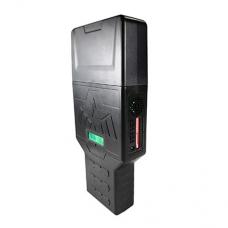The US Senator Tom Cotton from Arkansas and the US Representative David Kustoff from Tennessee have introduced accompanying invoices in both chambers, as The Associated Press has learned.
COLUMBIA, S.C. - The federal legislation proposed on Thursday would allow state prison officials use cell phone jammer to jamming signals from cell phones smuggled to inmates within their walls.
The US Senator Tom Cotton from Arkansas and the US Representative David Kustoff from Tennessee have introduced accompanying invoices in both chambers, as The Associated Press has learned.

The legislation could help find a solution to what prison officials say is the greatest security threat to their facilities. Correction chiefs across the country have long advocated the option of jamming the signals. The phones, which have been smuggled into their facilities by the thousands, by visitors, faulty employees and even by drones, are dangerous because inmates use them to carry out crimes and plan violence both inside and outside the prison.
However, the Federal Communications Commission, which regulates the country's radio waves, has stated that a decade-long ban on signal interruption by state institutions prevents the agency from allowing interference at that level. Wireless industry groups have said they fear that signal blocking technology could prevent legal calls.
Prison officials, including South Carolina Corrections Director Bryan Stirling, have advocated the ability to jam signals and said it is the best way to combat the dangerous devices. In 2017, Stirling testified at an FCC hearing in Washington along with Robert Johnson, a former South Carolina correction officer who nearly was killed in a 2010 hit staged by an inmate with an illegal phone.
Also that year, an inmate escaped from a maximum security prison in South Carolina, thanks in part to a smuggled cell phone. In 2018, seven inmates of a maximum security prison in South Carolina were killed in a gang fighting over territory and contraband including cell phones.
The FCC has shown its willingness to work on the issue and held a hearing in South Carolina at the invitation of the then government. Nikki Haley. Last year, Chairman Ajit Pai hosted a meeting with members of Congress, prison officials and cell phone industry stakeholders.
After last year's meeting, Kustoff told the AP that he had been encouraged by the FCC's action on the matter. Officials from the CTIA cellular trading group, who also attended the meeting, thanked Pai for organizing the meeting, saying that their members "recognize the very real threat that contraband devices pose to correctional facilities across the country, and we appreciate the commitment of everyone involved to identify and implement lawful solutions to this problem. "
Jamming is legal in federal facilities, although it has not been used. Last year, federal officials at a federal prison in Cumberland, Maryland tested the micro-jamming technology and said they could turn off phone signals in a prison cell while equipment worked normally about six meters away.
